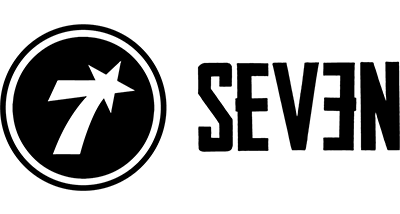Your Cart is Empty
Add description, images, menus and links to your mega menu
A column with no settings can be used as a spacer
Link to your collections, sales and even external links
Add up to five columns
Add description, images, menus and links to your mega menu
A column with no settings can be used as a spacer
Link to your collections, sales and even external links
Add up to five columns
Add description, images, menus and links to your mega menu
A column with no settings can be used as a spacer
Link to your collections, sales and even external links
Add up to five columns
Add description, images, menus and links to your mega menu
A column with no settings can be used as a spacer
Link to your collections, sales and even external links
Add up to five columns
What We Are Excited About: Our New Bussing Station + 0 Waste
January 04, 2020 2 min read

You may have heard Seven is trying to become Seattle's first zero waste cafe (and our numbers are looking really good).
One of the most noticeable changes is our new bussing station, handmade by our very own cafe manager, Seri. It may not seem like a big change, but it actually took quite a bit of research and hours of labor to build a disposal system that's easy for customers and optimizes sorting so that we can reach our goal of zero waste.

With the new bussing cabinet, we wanted it to be as easy as possible for customers to make the right choice about where to sort products when they are finished using them. Putting waste in the right bin shouldn't become a burden for the customer!
We started off by taking inventory of all the waste produced in our shop (a fancy way to say "we dug through the trash") and kept notes on the shape and size of the products consumed at the cafe. We quickly realized that our design of the cabinet could make it (almost) physically impossible to put waste in the wrong bin.
Compost

Since most of our items are compostable-- cups, lids, food packaging, straws, utensils etc.-- we wanted the compost to be the most natural choice for customers. To do this, we made the opening to the compost the largest and placed it closest to the door. Now what's the best option for the environment is also the easiest choice for the customer.
Recycling

The next best choice is recycling, so it's the next largest opening in our cabinet. By measuring our items, we were able to make the recycling just wide enough to fit bottles, cans, and yogurt cups, but not so wide that it's easy to toss other products in.
Landfill

Landfill: Our only sources of waste going to the landfill are snack packaging like chip bags and granola bar wrappers. Because this trash is nice and compact, we created just a narrow slot so putting something into the landfill is a very intentional choice.
The final bussing station doesn't necessarily look "conventional" (although we think it should be the new norm!) so it was important that a lot of thought and research go into our signage. We know our customers care, but we also know they are often in a hurry. Large text, designated colors and especially images of the actual products served in the cafe are the easiest ways for customers to quickly select a bin and be on their way.

Again, it seems like a small change to be excited about, but this new cabinet is good for the earth, good for customers, and good for business. With the new cabinet we can:
- Reduce the amount of waste going into the landfill
- Reduce the costs associated with waste disposal
- Reduce employee labor needed to sort through waste bins at the end of each day (yes, our employees are dedicated enough to do that!)
- Make it easier and more efficient for customers to sort their waste
- Promote our Zero Waste efforts


